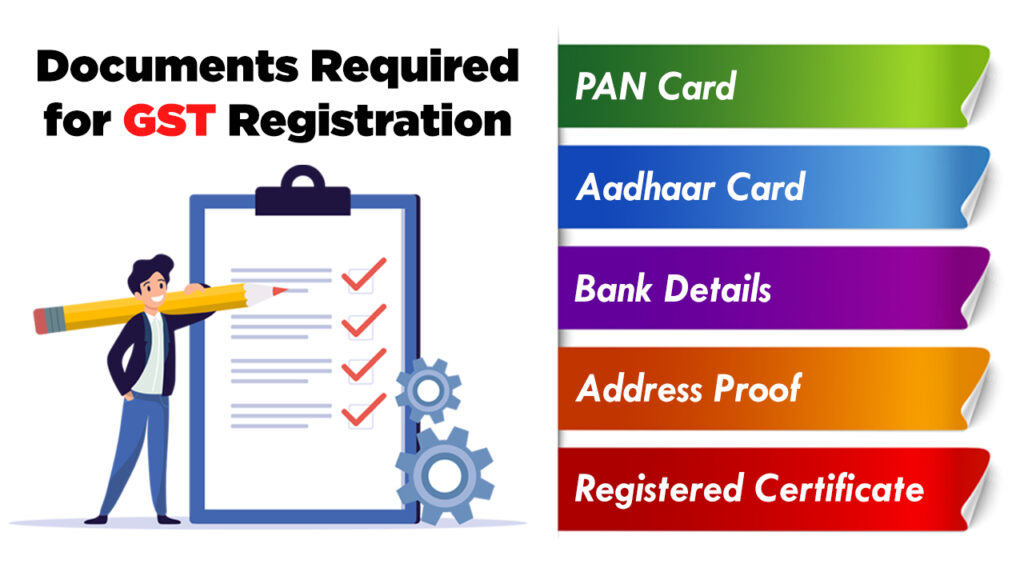The Ultimate Guide to Simplifying the GST Enrollment Process and Requirements for Small Organization Owners

Comprehending GST Essentials
To grasp the basics of the Product and Provider Tax (GST) system, local business owners need to initially understand its underlying effects and principles. GST is a value-added tax obligation levied on many products and solutions for domestic intake. It aims to simplify the tax procedure by changing several indirect tax obligations imposed by the state and central federal governments. Under the GST regime, companies are required to collect and sign up tax obligation on behalf of the federal government, ensuring openness and compliance.
One of the crucial principles of GST is input tax obligation credit report, which allows companies to claim credit score for tax obligations paid on their acquisitions. Understanding these fundamental principles is vital for tiny company owners to navigate the complexities of the GST system and ensure conformity with the legislation.
Eligibility Criteria for Registration
Having developed a fundamental understanding of GST principles, local business owners should currently meet specific qualification requirements to proceed with the registration procedure. In India, entities involved in the supply of products or solutions with a yearly accumulation turn over exceeding Rs. 40 lakhs (Rs. 10 lakhs for unique group states) are required to sign up for GST. In addition, particular services such as those associated with inter-state supply of items, informal taxed persons, and those called for to pay tax obligation under the reverse fee device must sign up for GST irrespective of their turnover. Moreover, companies that were registered under the previous tax regimen (BARREL, solution tax, and so on) are also mandated to sign up under GST. However, farming businesses that just supply produce out of primary production are exempt from GST enrollment. It is critical for entrepreneur to carefully examine their eligibility based upon these criteria to make sure compliance with the law and prevent any kind of fines for non-compliance.
Papers Needed for GST Registration

Simplified Enrollment Process Actions
Tips for Ensuring Conformity
To keep regulatory adherence and operational stability, attentive oversight and aggressive measures are critical in ensuring compliance with GST demands for little business proprietors. Little company proprietors should stay upgraded with GST laws, filing due dates, and any kind of adjustments in tax prices to stay clear of penalties and keep a great standing with tax obligation authorities. Attending GST understanding workshops or training programs can boost understanding and compliance with GST regulations, eventually profiting the service in the lengthy run.
Final Thought
To conclude, small company owners have to recognize the essentials of GST, fulfill the eligibility criteria, collect necessary records, and follow the streamlined registration process actions to make sure conformity. By streamlining the GST enrollment visit this page process and requirements, small service owners can stay clear of penalties and operate their businesses smoothly within the lawful framework - Singapore GST Registration. It is crucial for small company proprietors to remain informed and compliant with GST laws to maintain an effective service procedure
Tiny business proprietors seeking GST enrollment should ensure they gather and submit the necessary files to complete the enrollment process effectively. The files required for GST enrollment usually include evidence of business registration or consolidation, PAN (Permanent Account Number) card of the business identification, address and entity evidence of the promoters/partners/directors, pictures, address proof of the place of business, bank account declarations or terminated cheques, and authorization types. Attending GST recognition workshops or training programs can improve understanding and conformity with GST laws, ultimately profiting the company in click now the lengthy run.
By simplifying the GST registration process and demands, tiny organization owners can avoid charges and run their services smoothly within the legal framework. It is vital for little business proprietors to stay enlightened and certified with GST policies to preserve a successful business operation.
Comments on “How to Navigate Singapore GST Registration for Your Company”